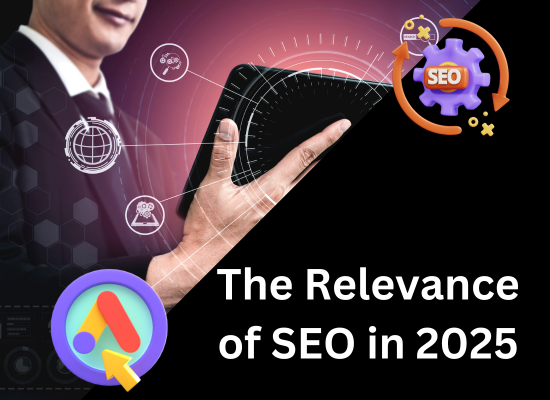In the fast-evolving landscape of digital marketing, questions around the relevance of SEO (Search Engine Optimization) seem to emerge with each technological shift and innovation. As we venture into 2025, the provocative question “Is SEO Dead?” resurfaces with renewed vigor. This blog aims to explore the current state of SEO, its challenges, and the innovations that ensure its place in the future of marketing.
The Evolution of Search Engines
To understand the status of SEO, it’s crucial to first look at the advancements in search engine technology. Search engines like Google have continuously refined their algorithms to prioritize user experience, focusing on relevance, content quality, and usability. The introduction of AI-driven algorithms such as Google’s BERT and MUM has further revolutionized how search queries are interpreted, moving beyond simple keywords to understanding the context and nuances of user intent.
SEO: Adapt or Perish
The notion that SEO is “dead” stems from outdated practices that no longer yield results. Keyword stuffing, cloaking, and manipulative link schemes have all fallen by the wayside, penalized by smarter algorithms. Today, SEO is not just about optimization for search engines but optimizing for the users. This includes enhancing the user experience through faster site speeds, mobile optimization, and content that genuinely addresses the users’ needs.
The Rise of Semantic Search
Semantic search has altered the SEO landscape by focusing on the meaning behind the words. This shift from keywords to topics requires a deeper understanding of your audience and their search contexts. Content that answers questions comprehensively, uses natural language, and integrates well with voice search and mobile devices is pivotal.
The Importance of E-A-T
Expertise, Authority, and Trustworthiness (E-A-T) have become central to SEO strategies. Google has placed significant emphasis on content quality, especially for YMYL (Your Money or Your Life) sites. Websites that demonstrate credibility and authority in their respective fields are rewarded with higher rankings. This underscores the importance of quality content creation, reliable sourcing, and a strong brand presence.
Integrated Digital Marketing Strategies
SEO in 2025 is not an isolated practice but part of a holistic digital marketing strategy. It intersects with social media, content marketing, and digital PR. The integration of these elements creates a robust framework that enhances visibility and drives organic traffic effectively. Successful brands in 2025 will be those that view SEO as a component of a broader digital ecosystem.
The Future is User-Centric
Looking ahead, the trajectory for SEO is clear—it must evolve in line with user behavior and technological advancements. The rise of augmented reality (AR) and virtual reality (VR) in search, the increasing use of AI, and the shift towards visual and voice search all point to a future where SEO remains relevant but becomes more sophisticated and user-focused.
Conclusion
Is SEO dead in 2025? Far from it. It’s evolving, adapting, and becoming more integral to a comprehensive digital marketing strategy. While the tactics and techniques may change, the core objective remains the same: to deliver a seamless, engaging user experience that not only attracts but also retains customers. SEO is not just surviving; it’s thriving by continuously proving its value in the digital marketing landscape.





